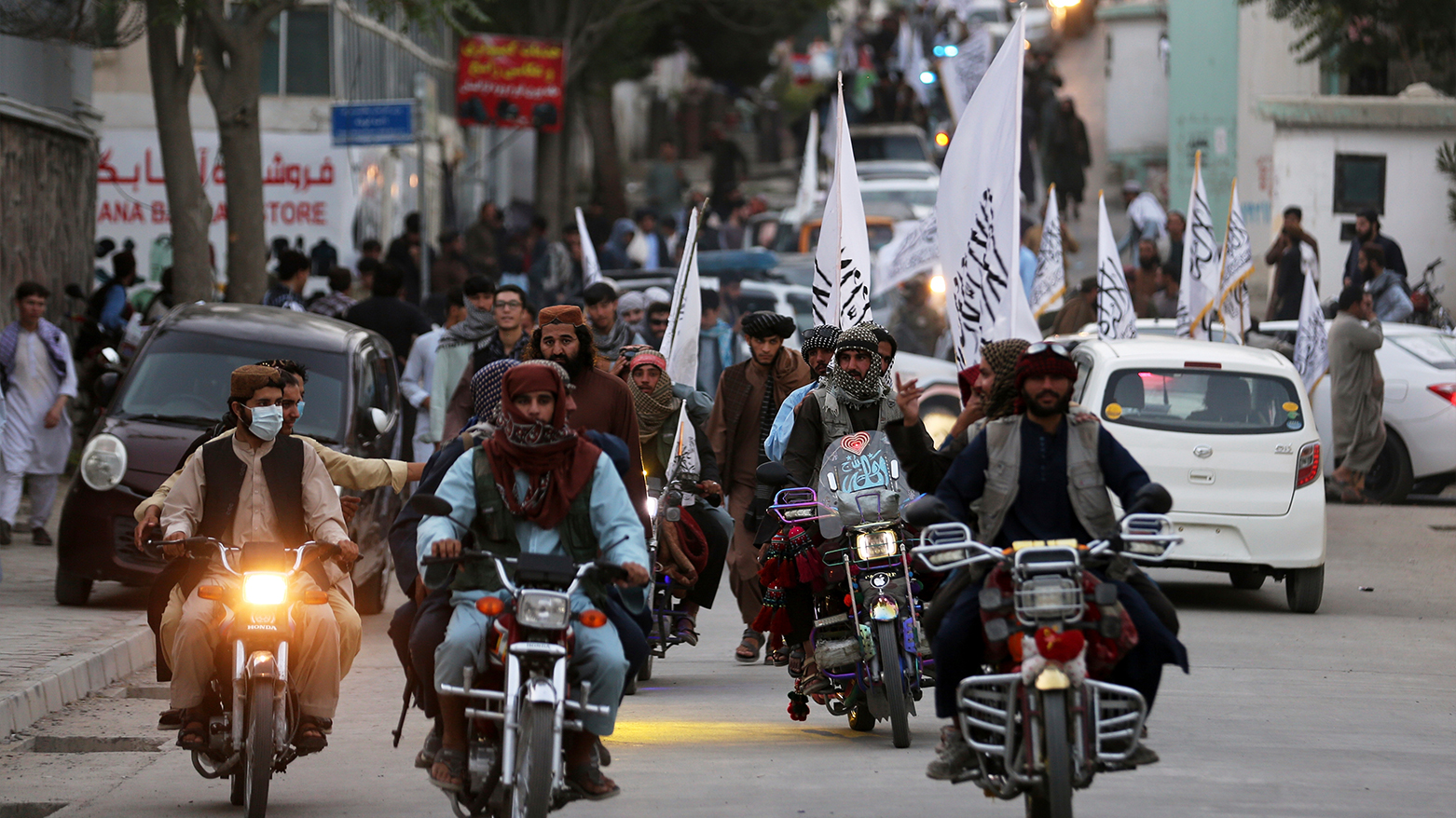Taliban Accuse Pakistan of 'Violating Kabul's Sovereign Territory' After Blasts Rock Capital
The Taliban accused Pakistan of violating Afghan sovereignty after two blasts in Kabul, an "unprecedented act" amid rising cross-border tensions.

ERBIL (Kurdistan24) - In a sharp and dramatic escalation of the rapidly deteriorating relationship between two uneasy neighbors, the Taliban government in Kabul on Friday issued a blistering accusation against Pakistan, claiming it had "violated Kabul's sovereign territory" following two powerful explosions that rocked the Afghan capital.
This is the first time the Taliban have alleged such a deep incursion into their territory by Islamabad, a charge they described as an "unprecedented, violent, and heinous act."
The accusation, which came alongside reports of a separate bombing of a market in the border province of Paktika, marks a dangerous new phase in a long-simmering conflict over cross-border militancy, a conflict that now appears to be spilling from the rugged frontier regions into the very heart of the Afghan state.
In a strongly worded statement posted on social media, the Taliban's Ministry of Defence detailed the alleged acts of aggression. "Pakistan violated Afghanistan's airspace, bombing a civilian market in the Marghi area of Paktika near the Durand Line and also violating Kabul's sovereign territory," the ministry declared, as reported by Agence France-Presse (AFP).
While the Taliban have previously accused Islamabad of carrying out strikes along their shared and often porous border, the specific allegation of a violation within Kabul itself is a significant and inflammatory new development. "This is an unprecedented, violent, and heinous act in the history of Afghanistan and Pakistan," the statement added.
The ministry's statement did not specify the exact nature of the violation in Kabul, but it came just hours after AFP journalists in the capital heard two loud and powerful blasts late on Thursday night.
Simultaneously, residents in the border town of Marghi in Paktika province reported that a local market, which was known for selling second-hand weapons, had been bombed.
The confluence of these two events has created a tense and volatile atmosphere, with the Taliban issuing a direct and unambiguous warning to Islamabad. "If the situation becomes more tense after these actions, the consequences will be attributed to the Pakistani army," the statement warned.
This sharp escalation in rhetoric and alleged military action comes at a moment of significant diplomatic maneuvering in the region. The accusations were leveled as the Taliban's Foreign Minister, Amir Khan Muttaqi, was making his first official visit to India, Pakistan's arch-rival.
During that visit, New Delhi announced that it was upgrading its diplomatic mission in Kabul to a full embassy, a move that is likely to be viewed with deep suspicion in Islamabad and could further fuel the growing tensions.
For its part, the Pakistani military has been pointedly ambiguous in its response. During a televised press conference in the city of Peshawar on Friday, a military spokesman, General Ahmed Sharif Chaudhry, did not directly confirm or deny responsibility for the attacks when questioned.
Instead, he offered a broad and ominous justification for potential future actions. "To safeguard Pakistani lives and properties, what measures need to be taken will be taken," General Chaudhry told reporters, a statement that leaves the door wide open for further cross-border military operations.
The root of this escalating conflict is a dramatic and bloody surge in militancy in Pakistan's border province of Khyber Pakhtunkhwa, a wave of violence that has intensified since the withdrawal of U.S.-led forces from Afghanistan in 2021 and the subsequent return of the Taliban to power in Kabul.
The primary perpetrator of this violence has been the Tehreek-e-Taliban Pakistan (TTP), a militant group that is separate from but ideologically and operationally linked to the Afghan Taliban.
The TTP and its affiliates have carried out a relentless campaign of attacks, largely directed at Pakistani security forces. The human cost of this insurgency has been starkly illustrated this week alone, with at least 12 Pakistani troops killed in the border regions.
Islamabad has repeatedly and publicly accused the Taliban government in Kabul of providing a safe haven and operational support to the TTP, allowing the group to launch attacks on Pakistani soil with impunity.
These are allegations that the Taliban government has consistently denied, creating a deep and seemingly unbridgeable rift between the two countries. However, Pakistan's claims have been bolstered by international assessments.
A United Nations report released earlier this year stated that the TTP "receive substantial logistical and operational support from the de facto authorities," a direct reference to the Taliban government in Kabul.
The patience of the Pakistani government appears to have finally run out. On Thursday, just hours before the reported strikes, Pakistani Defence Minister Khawaja Muhammad Asif delivered a fiery address to the country's parliament, declaring that repeated diplomatic efforts to persuade the Afghan Taliban to stop backing the TTP had failed.
"We will not tolerate this any longer," Asif stated, as reported by AFP. He signaled a new and more aggressive policy, warning, "United, we must respond to those facilitating them -- whether the hideouts are on our soil or Afghan soil."
In a particularly stark warning that now appears chillingly prescient, the Defence Minister acknowledged the potential for collateral damage in any future operations.
"Everyone will have to bear the consequences, including those providing the hideouts," he said, before delivering a blunt and final ultimatum: "Enough is enough. The Pakistani government and army's patience has run out."
The explosions that echoed through Kabul that same night, and the Taliban's furious response on Friday, suggest that Pakistan is now prepared to act on that ultimatum, pushing a volatile and unstable region one step closer to a wider and potentially devastating conflict.